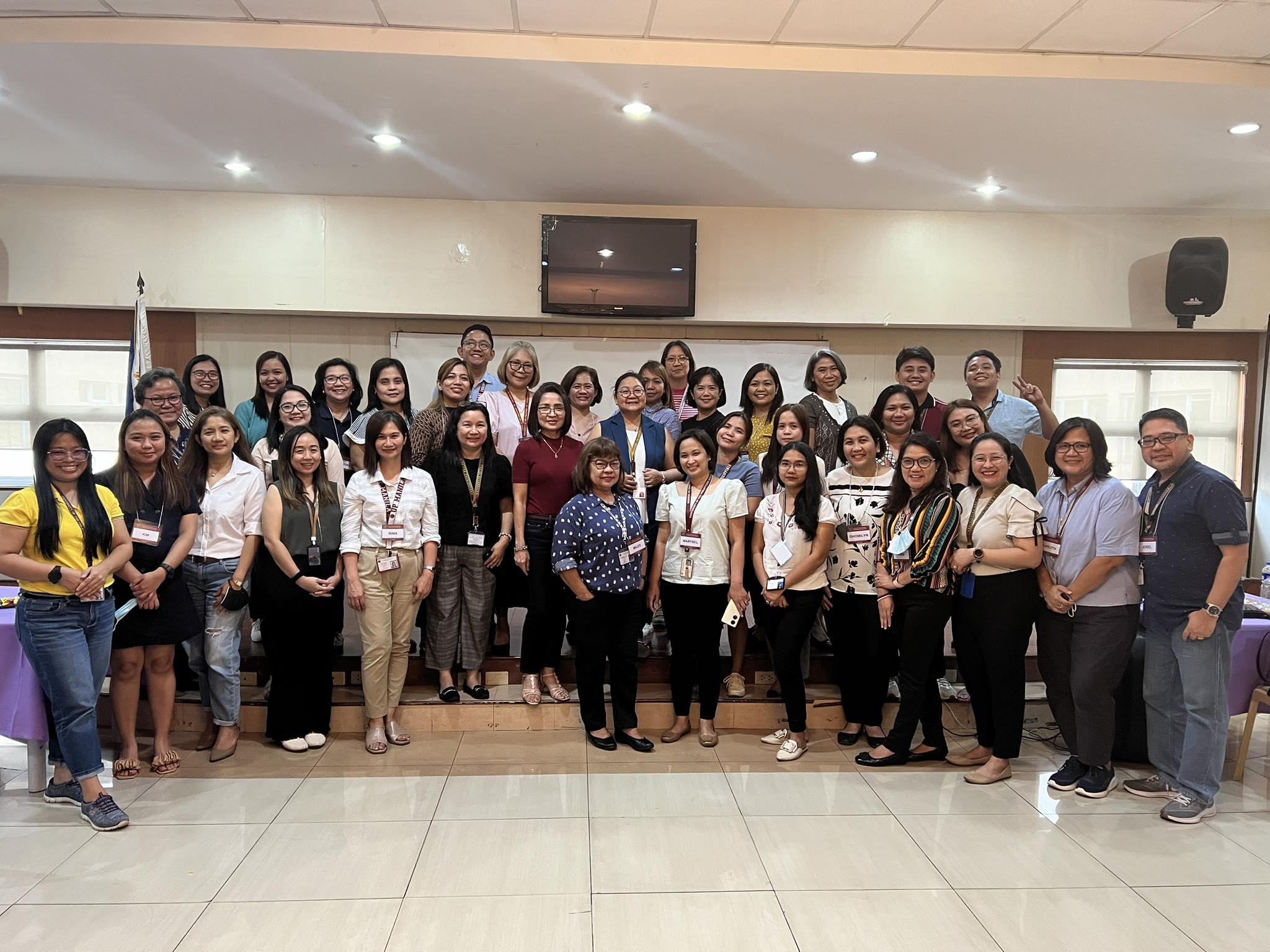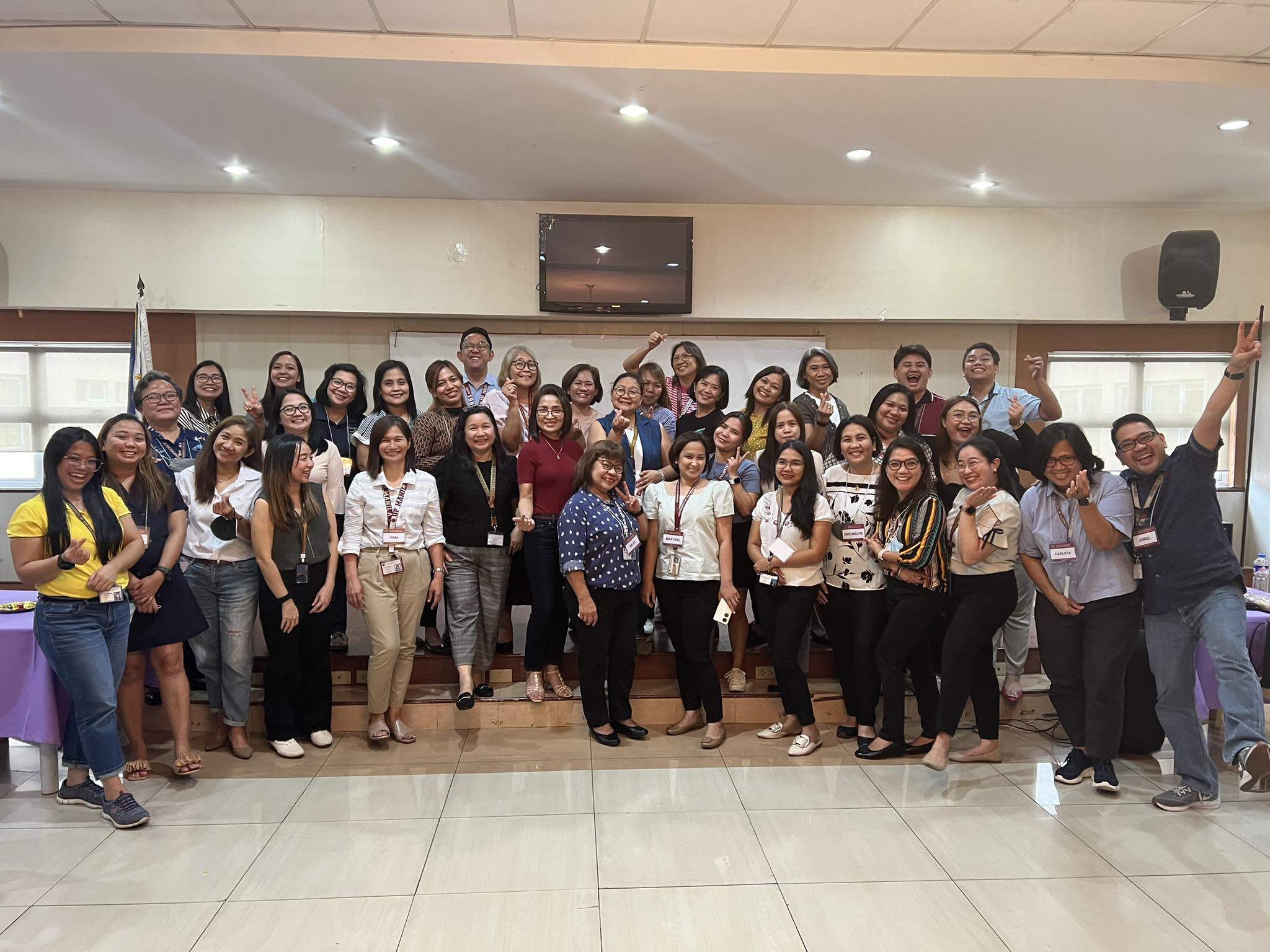Date: June 29, 2023, 9:00 am to 4:00 pm
Venue: 8th Floor, Social Hall, PGH Building
Authors:
Ma. Janelle D.A Gabion and Jeah May O. Badeo, July 2023
Human Resource Development Office
In our ever-changing landscape, the success of an organization is greatly influenced by the skills and qualities of its leaders. As our University continues to grow, it is crucial that leaders are equipped with the knowledge and skills necessary to effectively lead and manage their respective offices. In pursuit of UP Manila Human Resource Development Office’s commitment to have well-rounded and globally competitive leaders who continuously improve performance and deliver impactful results, the Training and Research Section designed a leadership and people management training program.
Dr. Emely D. Dicolen, Associate Professor 7 and College Secretary, led the face-to-face training entitled “Efficient Leadership and People Management Skills” intended for the Supervisors and Administrative Officers of all Colleges, Units, and Offices of UP Manila, last June 29, 2023, at Social Hall, 8th Floor PGH Building.
Vice Chancellor for Administration and Finance Dr. Arlene A. Samaniego formally opened the program and welcomed the participants. She mentioned that the training is a result of the training needs assessment where employees expressed the need for leadership related training. Additionally, she highlighted that the training is not only for the advancement of their profession and career but also for their personal growth so that wherever they may work, may it be within or outside the University, they are equipped with the right skills and mindset to lead efficiently.
Dr. Dicolen started the training with reflective and strength-building exercises where participants shared within their group the experience or decision that made them feel good about themselves and gave them extreme happiness. This was followed by the definition of core values, its types, and factors affecting its formation to help participants identify their strengths as leaders and understand how the mismatch between personal and organizational values can affect them and the university.
Dr. Dicolen also introduced Appreciative Inquiry (AI) to emphasize the importance of practicing giving and receiving feedback and affirmations to become efficient and effective leaders. She discussed the 4-D Cycle of Appreciative Inquiry (Discovery, Dream, Design and Destiny), Appreciative Leadership, and 5 Principles of Appreciative Leadership (Inquiry, Illumination, Inclusion, Inspiration, and Integrity).
Participants were also given a few minutes to answer a leadership style indicator survey to examine the leadership and management styles appropriate to their contexts. After answering the survey, Dr. Dicolen guided the participants in determining and critiquing their leadership styles: pioneering leaders, strategic leaders, stewards and managers, team leaders, pastoral leaders, and encouraging leaders.
The training concluded with the participants writing their “Leadership Credo” - a statement of values, purpose, and intention and a future-focused vision of how they intend to lead in their respective offices.

